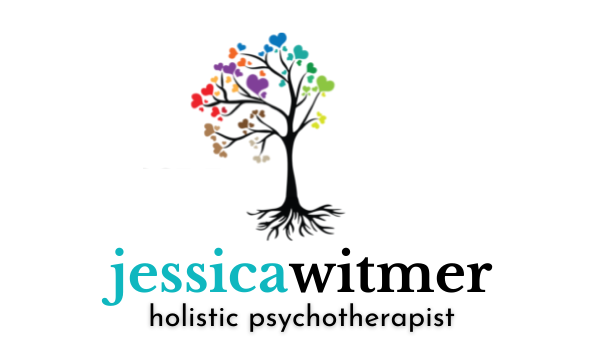Written By: Jessica Witmer, MA, Ms.Ed., CHt, LMHCA
One of the most crucial nutrients for mental health is the humble mineral magnesium. Magnesium is involved in over 300 actions in the human body, many of which are brain-related, making it a true “rock star” of optimal mental health.
Unfortunately, most Americans now suffer from magnesium deficiency due to the seriously poor nutritional status of our soil due to factory farming and the SAD (standard American diet) which consists mostly of processed foods which are void of many vitamins and minerals. (See more data here.)
This is a perfect storm that has put millions of people, particularly children, who tend to avoid foods that are high in magnesium, at risk of developing magnesium deficiency and mental distress.
Magnesium Deficiency & Mental Health Disorders
Inadequate levels of magnesium correlate with numerous health problems such as as heart disease, asthma, diabetes, and neuromuscular disease such as chronic fatigue and fibromyalgia. Furthermore, magnesium deficiency has also been implicated in diseases of cognitive function such as a Alzeheimer’s disease, as well as serious mental health problems such as depression, anxiety, and ADHD.
In fact, in one alarming report, magnesium deficiency was found in 95% of children with ADHD who were tested for the study!
Mental Health Benefits of Magnesium Supplementation
As alarming as that information is, there is some good news: increasing intake of magnesium has been show in clinical trials to decrease symptoms of mental distress both in children and in adults. In one study, children with ADHD who supplemented with magnesium for a period of 6 months had noticeable reduced levels of hyperactivity. In another study, adult patients recovering from major depression less than 7 days after using 125-300 mg of magnesium with each meal and at bedtime.
How to Increase Magnesium Intake
With some planning, magnesium levels can be increased via food or supplementation. Foods that are high magnesium include black beans, green vegetables, nuts, seeds, bananas, and whole grains. A delicious way to increase magnesium levels is in a daily green smoothie, made in a high powered blender. Magnesium can also be added to the diet via supplementation, at your doctor’s suggested dosages.
For more information on the many benefits of magnesium, including learning how to test to see whether you are deficient, see one the website of my favorite writers and doctors, Dr. Carolyn Dean, MD, ND, author of The Magnesium Miracle.
References:
1 Eby, G. A., Eby, K. L., & Murck, H. (2011). Magnesium and major depression. In R. VINK & M. NECHIFOR (Eds.), Magnesium in the Central Nervous System (pp. 313–330). University of Adelaide Press. http://www.jstor.org/stable/10.20851/j.ctt1t3055m.27
2 Barbagallo, M., Dominguez, L.J. (2018). Magnesium Role in Health and Longevity. In: Malavolta, M., Mocchegiani, E.(eds) Trace Elements and Minerals in Health and Longevity. Healthy Ageing and Longevity, vol 8. Springer, Cham. https://doi.org/10.1007/978-3-030-03742-0_9
3 Serefko A, Szopa A, Wlaź P, Nowak G, Radziwoń-Zaleska M, Skalski M, Poleszak E. Magnesium in depression. Pharmacol Rep. 2013;65(3):547-54. doi: 10.1016/s1734-1140(13)71032-6. PMID: 23950577.
4 Sartori SB, Whittle N, Hetzenauer A, Singewald N. Magnesium deficiency induces anxiety and HPA axis dysregulation: modulation by therapeutic drug treatment. Neuropharmacology. 2012 Jan;62(1):304-12. doi: 10.1016/j.neuropharm.2011.07.027. Epub 2011 Aug 4. PMID: 21835188; PMCID: PMC3198864.
5 Effatpanah M, Rezaei M, Effatpanah H, Effatpanah Z, Varkaneh HK, Mousavi SM, Fatahi S, Rinaldi G, Hashemi R. Magnesium status and attention deficit hyperactivity disorder (ADHD): A meta-analysis. Psychiatry Res. 2019 Apr;274:228-234. doi: 10.1016/j.psychres.2019.02.043. Epub 2019 Feb 19. PMID: 30807974.
6 Kozielec T, Starobrat-Hermelin B. Assessment of magnesium levels in children with attention deficit hyperactivity disorder (ADHD). Magnesium Research. 1997 Jun;10(2):143-148. PMID: 9368235.
7 Starobrat-Hermelin B, Kozielec T. The effects of magnesium physiological supplementation on hyperactivity in children with attention deficit hyperactivity disorder (ADHD). Positive response to magnesium oral loading test. Magnesium Research. 1997 Jun;10(2):149-156. PMID: 9368236.
8 Eby GA, Eby KL. Rapid recovery from major depression using magnesium treatment. Med Hypotheses. 2006;67(2):362-70. doi: 10.1016/j.mehy.2006.01.047. Epub 2006 Mar 20. PMID: 16542786.

